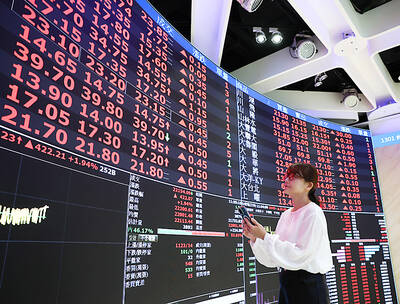Freeport McMoRan Inc’s Grasberg copper mine in Indonesia, the world’s second-largest for the metal by capacity, yesterday reopened after a worker roadblock stopped production for five days and helped push the metal to a two-month high.
Access to the site, located in the mountains in Papua Province in eastern Indonesia, was restored this morning and normal operations are resuming, PT Freeport Indonesia spokeswoman Daisy Primayanti said in a telephone interview.
The roadblock has been cleared, PT Freeport Indonesia workers’ union spokesman Juli Parorrongan said.
“The union has said to the workers that they should go back to work,” Parorrongan said in a telephone interview yesterday.
Grasberg has been plagued by labor strife in recent years. Workers seeking higher wages held a strike in 2011 and the mine was closed for months following a tunnel collapse in 2013.
The protesters, who the union said numbered about 100 on Friday, had been demanding bonuses as an incentive for not taking part in a work stoppage last year. Shipments of concentrates from stockpiles continued during the closure.
Copper for delivery in three months rose 3.3 percent to US$6,045 per tonne on the London Metal Exchange on Friday, following a 3.3 percent advance the day before. The metal touched US$6,082.5 on Friday, the highest since Jan. 12.
Freeport Indonesia did not reach an agreement with the workers on their demands and dialog is continuing, Primayanti said.

UNCERTAINTIES: Exports surged 34.1% and private investment grew 7.03% to outpace expectations in the first half, although US tariffs could stall momentum The Chung-Hua Institution for Economic Research (CIER, 中華經濟研究院) yesterday raised its GDP growth forecast to 3.05 percent this year on a robust first-half performance, but warned that US tariff threats and external uncertainty could stall momentum in the second half of the year. “The first half proved exceptionally strong, allowing room for optimism,” CIER president Lien Hsien-ming (連賢明) said. “But the growth momentum may slow moving forward due to US tariffs.” The tariff threat poses definite downside risks, although the scale of the impact remains unclear given the unpredictability of US President Donald Trump’s policies, Lien said. Despite the headwinds, Taiwan is likely

READY TO BUY: Shortly after Nvidia announced the approval, Chinese firms scrambled to order the H20 GPUs, which the company must send to the US government for approval Nvidia Corp chief executive officer Jensen Huang (黃仁勳) late on Monday said the technology giant has won approval from US President Donald Trump’s administration to sell its advanced H20 graphics processing units (GPUs) used to develop artificial intelligence (AI) to China. The news came in a company blog post late on Monday and Huang also spoke about the coup on China’s state-run China Global Television Network in remarks shown on X. “The US government has assured Nvidia that licenses will be granted, and Nvidia hopes to start deliveries soon,” the post said. “Today, I’m announcing that the US government has approved for us

When Lika Megreladze was a child, life in her native western Georgian region of Guria revolved around tea. Her mother worked for decades as a scientist at the Soviet Union’s Institute of Tea and Subtropical Crops in the village of Anaseuli, Georgia, perfecting cultivation methods for a Georgian tea industry that supplied the bulk of the vast communist state’s brews. “When I was a child, this was only my mum’s workplace. Only later I realized that it was something big,” she said. Now, the institute lies abandoned. Yellowed papers are strewn around its decaying corridors, and a statue of Soviet founder Vladimir Lenin

The National Stabilization Fund (NSF, 國安基金) is to continue supporting local shares, as uncertainties in international politics and the economy could affect Taiwanese industries’ global deployment and corporate profits, as well as affect stock movement and investor confidence, the Ministry of Finance said in a statement yesterday. The NT$500 billion (US$17.1 billion) fund would remain active in the stock market as the US’ tariff measures have not yet been fully finalized, which would drive international capital flows and global supply chain restructuring, the ministry said after the a meeting of the fund’s steering committee. Along with ongoing geopolitical risks and an unfavorable